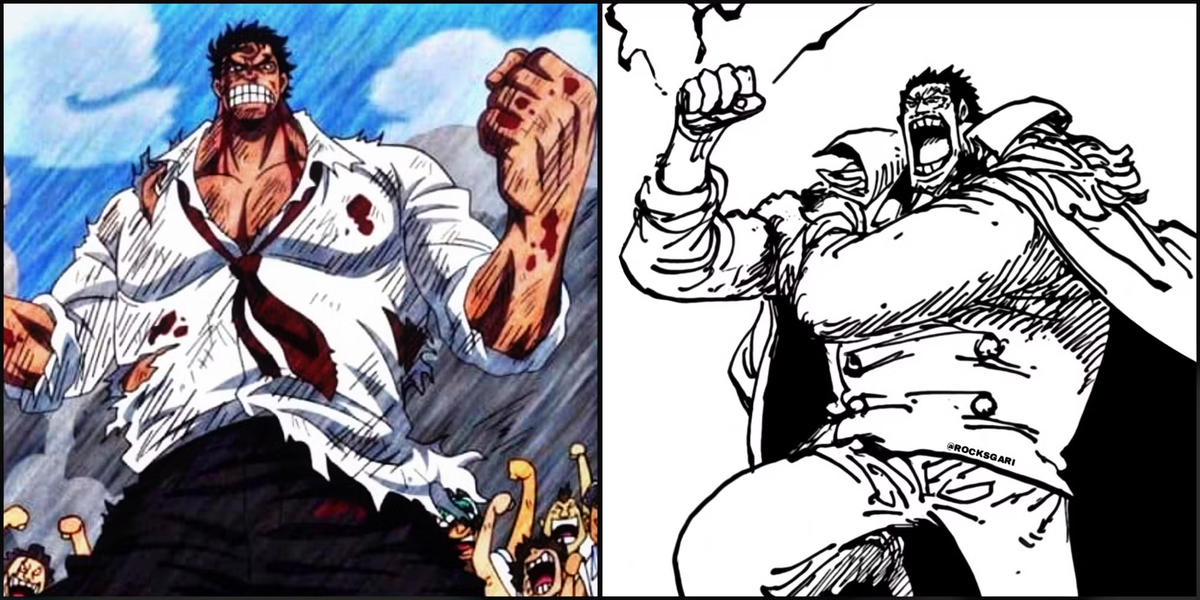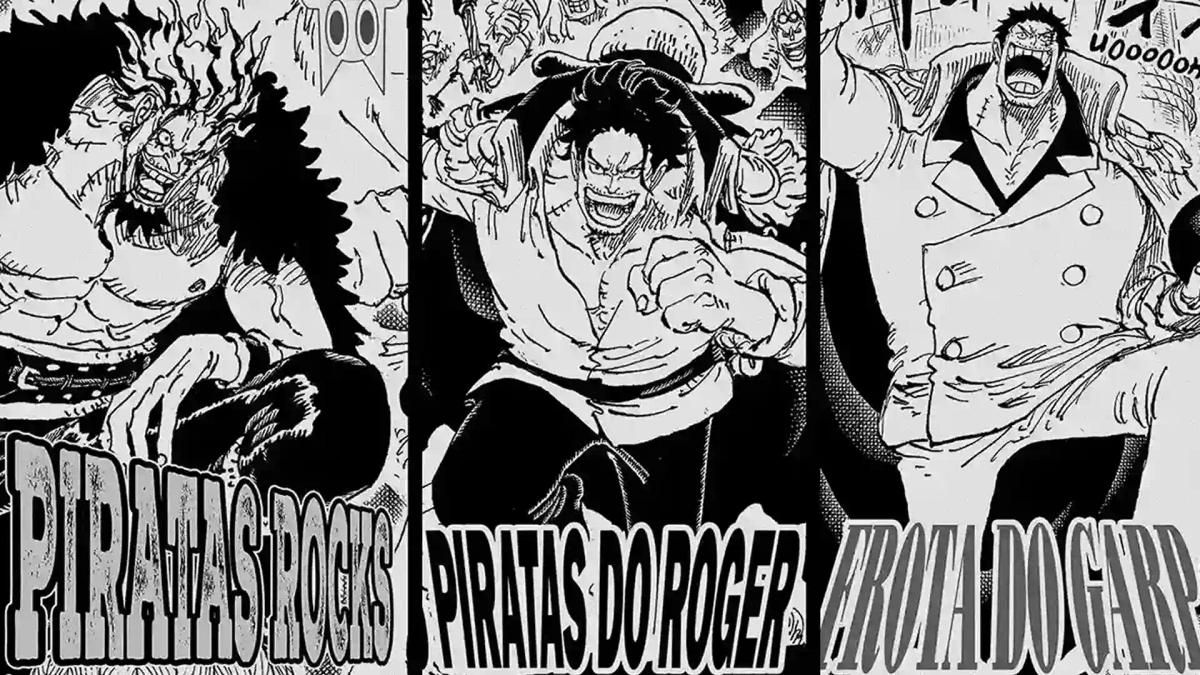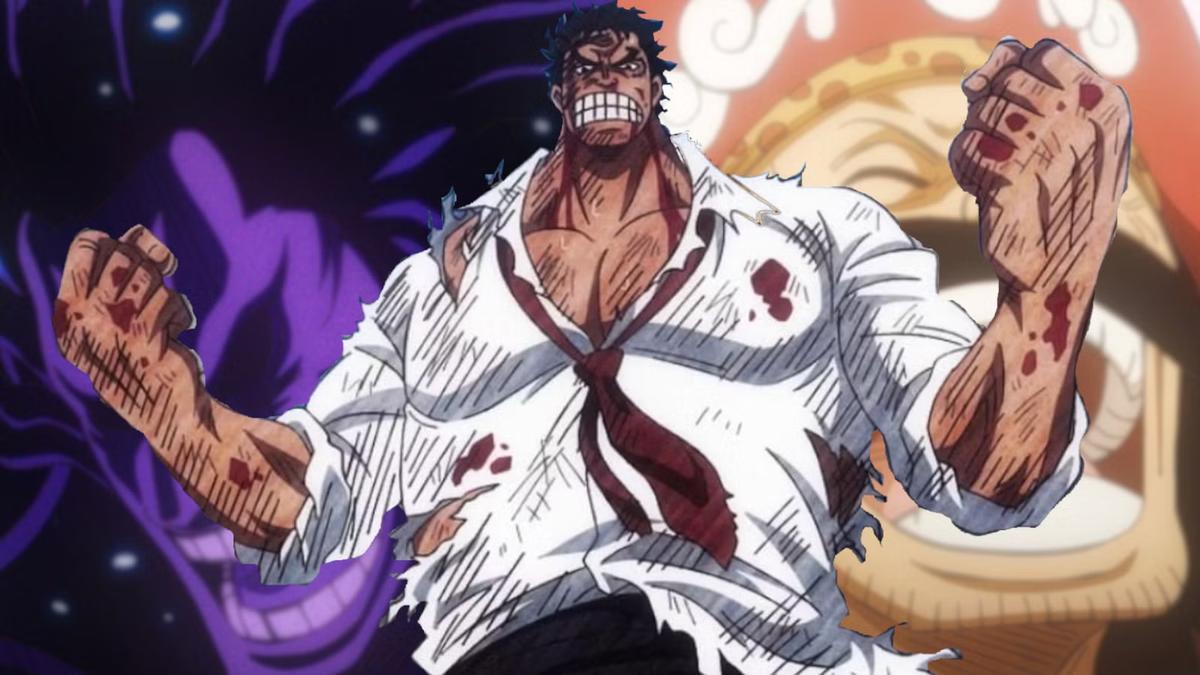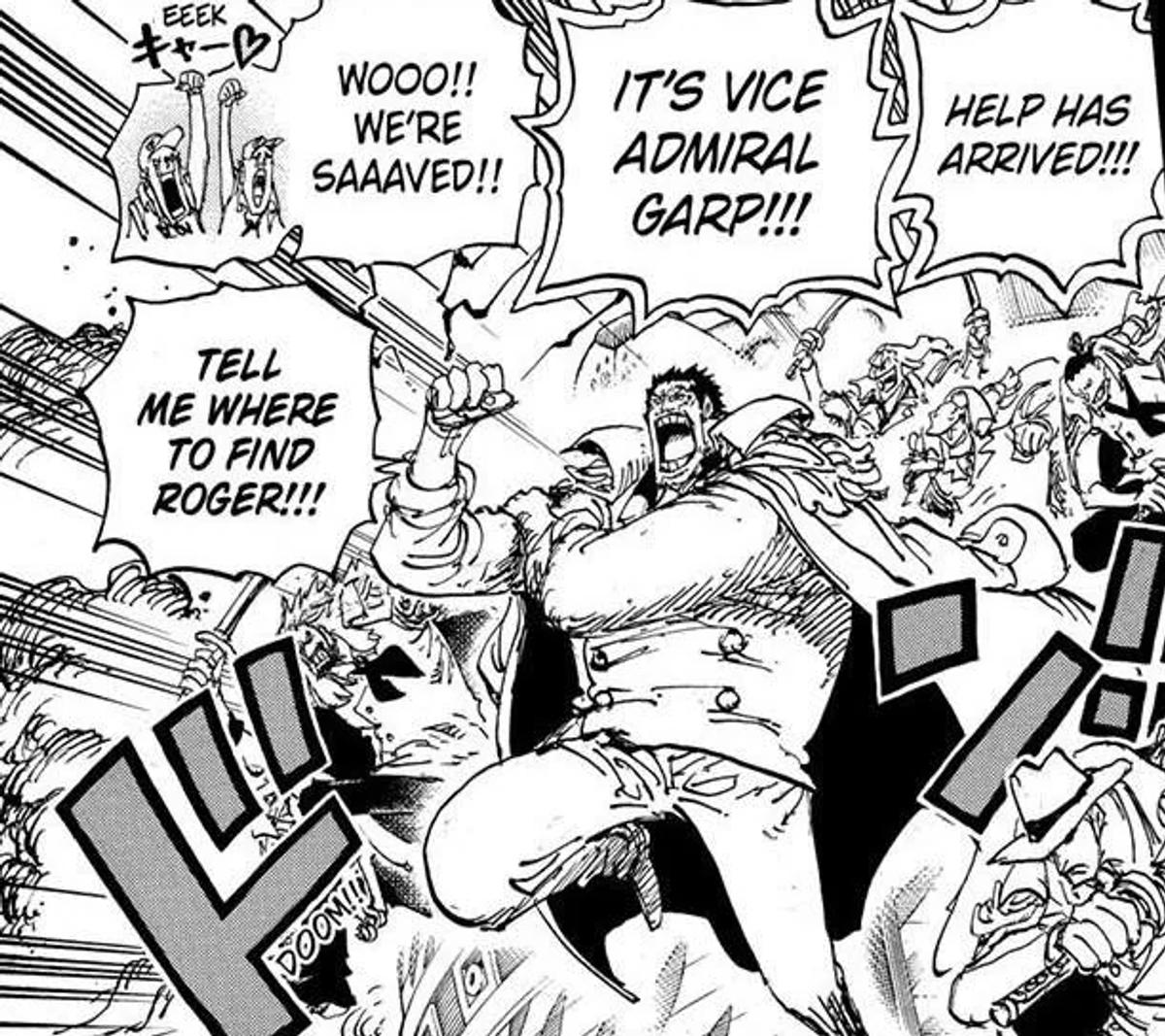The long-hidden saga of the God Valley Incident is rocketing into the spotlight as one of the most enthralling chapters in One Piece’s lore. Legendary figures such as Rocks D. Xebec, Gol D. Roger, Monkey D. Garp, and the enigmatic Imu are all active players in a sequence of events that feels less like side-story and more like a hidden historical epic.
The incident reveals glimmers of the “true history” of the world — the power struggles behind the scenes between the World Government, pirates, and marines, the role of the Celestial Dragons, and the buried foundations of today’s era in the story.
It’s no wonder fans are obsessed: the scale, the characters, the stakes all feel like they’ve pulled back the veil on something massive.
Why Garp’s Ranking Raises Questions

So here’s the core mystery: If Garp directly attacked Imu during the God Valley Incident — essentially crossing the top of the World Government — how is he still an admiral (or at least a high-ranking Marine) today?
What we know:
- Garp played a key role in the God Valley Incident, earning the title “Hero of the Marines” after the event.
- Recent spoilers suggest that in chapter 1163, Garp, Roger and others teamed up against Imu on God Valley, making it clear he opposed Imu’s will rather than obeyed it.
- He has repeatedly declined full-Admiral rank because he refuses to be directly subordinate to the World Nobles / Celestial Dragons.
Possible explanations for how he’s still in the Marines:
- He never accepted the promotion – Garp may remain at Vice-Admiral or similar rank deliberately to maintain independence from the most corrupt authorities.
- Selective memory / government cover-up – It may be that the full truth of God Valley (and Garp’s actions) has been censored or rewritten by the World Government, allowing him to walk both sides of the line.
- He chose to stay to change things from within – Rather than abandon the Marines, Garp could have stayed in‐system to protect what he believed in, even if that means keeping a foot in the door with institutions he distrusts.
What This Means for the Story

Garp’s position at the present time is loaded with dramatic tension: a hero of the Marines who seems to have defied the highest authority, yet remains part of the system. It raises questions about ideals vs systems, hypocrisy vs duty, and how far one can push against corrupt power while still working inside it.
This ambiguity works because it deepens Garp’s character — not just “strong Marine grandpa” but a man caught between legacy, justice, and the darker truths of the world.
Moreover, the way this arc is playing out (with fans reluctant to leave the flashback and return to the Straw Hat Pirates present-day storylines) is telling. The God Valley flashback isn’t just background filler — for many it’s the moment of the series right now, overshadowing the main plot in sheer intrigue and scale.
Why the Fandom Cares

- It’s rare for a long-running series like One Piece to dig this deeply into its own mythos and change how we look at its characters.
- Garp’s stakes in this arc challenge everything we thought about his motivations — is he a hero of the Marines, or something more complicated?
- The revelations affect not only him, but the entire world structure of One Piece: the Marines, World Government, pirates, legacy of the Rocks Pirates, and the very nature of “truth” in the story.
- And quite simply: fans are loving the tone shift — darker, more sweeping, more consequential than many past arcs.
In Summary

In short: Garp’s continued status as an admiral (or high-ranking Marine) despite attacking Imu likely comes down to a mix of political cover-up, his own deliberate rank decisions, and a complex choice to remain inside a system he doesn’t fully trust.
The God Valley Incident has turned into a narrative fulcrum for One Piece, and Garp’s position in the aftermath only makes it richer. Whether the arc returns to the Straw Hats soon or not, the story it’s telling now is redefining not just one character but the hidden history of the world.







